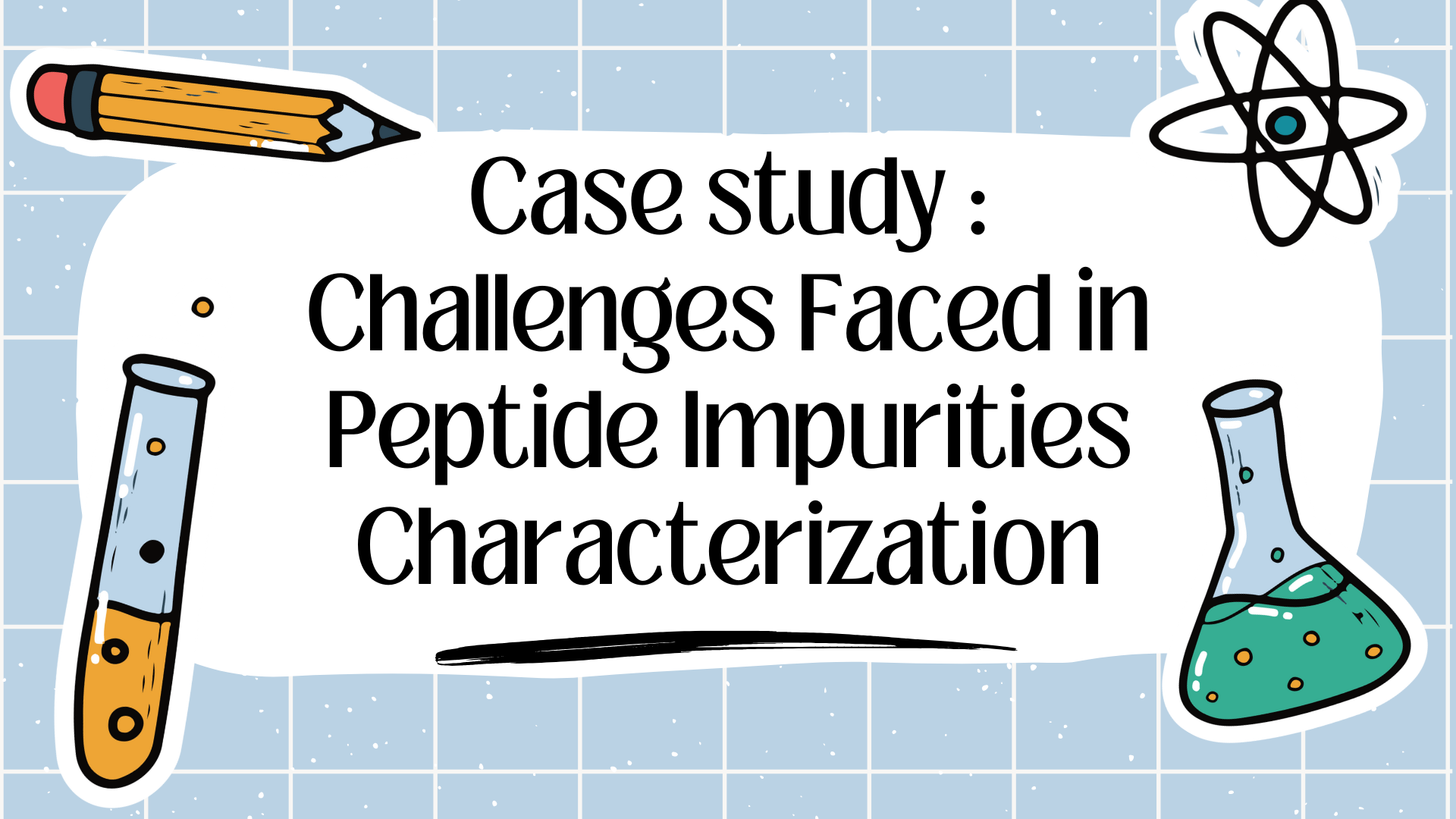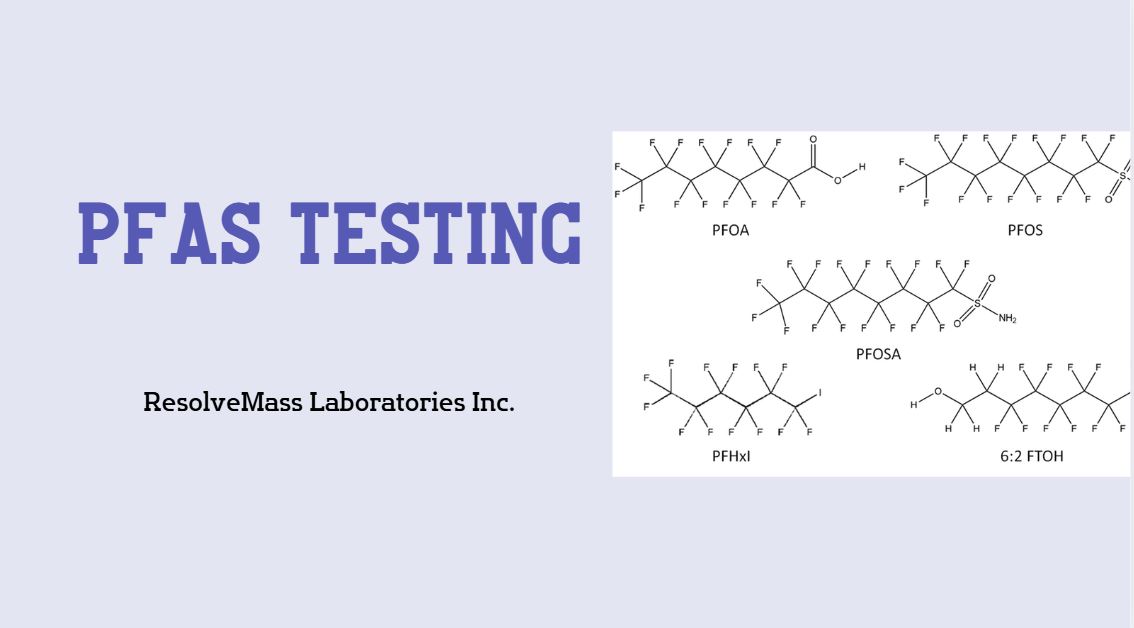Introduction
In the advancing world of peptide-based therapeutics, ensuring purity is not merely a regulatory requirement but a scientific necessity. Peptide Impurities Characterization plays a crucial role in guaranteeing the effectiveness, safety, and stability of peptide drugs. At ResolveMass Laboratories Inc., our cutting-edge methodologies and years of expertise establish us as pioneers in Peptide Impurities Characterization, consistently resolving the most challenging analytical problems for global biotech and pharmaceutical companies.
Why Peptide Impurities Characterization is Mission-Critical
Peptides, due to their complex synthesis and vulnerability to degradation, often contain various impurities, including truncated sequences, misincorporated amino acids, aggregation products, and oxidation by-products.
Unidentified or unquantified impurities can jeopardize regulatory submissions and compromise patient safety. Through robust Peptide Impurities Characterization, we ensure:
- Comprehensive impurity profiling
- Regulatory compliance (ICH Q3A/B, FDA, EMA)
- Increased batch consistency
- Enhanced therapeutic dependability
(Explore our detailed Peptide Characterization Services here.)
Real-World Case Study: Unmasking Hidden Impurities in a Clinical-Stage Peptide
Project Overview
A mid-sized biopharmaceutical client approached ResolveMass Laboratories Inc. with an urgent problem:
Their lead peptide therapeutic candidate, in Phase II trials, exhibited unexpected stability issues, and preliminary analysis indicated unknown degradation products.
- Peptide size: 29 amino acids
- Purity requirement: >98% by HPLC
- Stability testing: 6 months under accelerated conditions (40°C/75% RH)
Despite conventional HPLC analysis, unidentified peaks persisted after 3 months. immediate action was needed to de-risk the program.
Approach for Peptide Impurities Characterization
ResolveMass implemented a multi-layered strategy:
- High-Resolution Mass Spectrometry (HRMS)
Ultra-sensitive HRMS revealed two previously unknown mass variants (Δ+16 and Δ-18 Da), suggesting oxidation and dehydration events. - Peptide Mapping with Enzymatic Digestion
Targeted digestion followed by LC-MS/MS identified oxidation on methionine-15 and deamidation at asparagine-22. - Ion Mobility Spectrometry (IMS)
Enabled separation of conformational isomers that conventional LC could not resolve. - Orthogonal Chromatographic Techniques
Including reverse-phase (RP-HPLC) and hydrophilic interaction chromatography (HILIC) for cross-validation. - Comprehensive Stability Profiling
Simulations under various pH and temperature conditions uncovered a critical pH-sensitivity issue at pH >7.0.
Results
| Parameter | Before ResolveMass | After ResolveMass Optimization |
|---|---|---|
| Unknown Impurities (%) | ~2.3% | <0.2% |
| Confirmed Oxidation Sites | 0 | 2 |
| Confirmed Deamidation Sites | 0 | 1 |
| Stability at 40°C/75%RH (6 months) | Failed (Visible degradation) | Passed (No significant degradation) |
Impact
The client successfully resubmitted stability data to the regulatory agency without delaying their clinical program.
ResolveMass’s unmatched expertise in Peptide Impurities Characterization made a direct contribution to clinical success.
(Learn more about our Peptide Sequencing Services and how we enhance your peptide analysis strategies.)
Key Challenges in Peptide Impurity Characterization
1. Structural Complexity
Peptides often adopt multiple conformations, complicating impurity separation.
2. Analytical Sensitivity
Minor impurities (<0.1%) require ultra-sensitive detection methods.
3. Data Interpretation
Deconvoluting mass spectral data demands expertise, especially for overlapping isotopic patterns.
4. Stability-induced Impurities
Degradation pathways such as oxidation, hydrolysis, and racemization must be anticipated.
ResolveMass Laboratories Inc. employs a proprietary workflow tailored for these challenges, establishing our leadership in Peptide Impurities Characterization.
Best Practices for Effective Peptide Impurities Characterization
- utilize orthogonal analytical platforms (e.g., HPLC-MS, CE-MS).
- Validate all methods according to regulatory guidelines.
- Implement predictive degradation studies.
- collaborate with specialized CROs like ResolveMass Laboratories Inc. for top-tier expertise.
Why ResolveMass Laboratories Inc. is the Trusted Choice for Peptide Impurities Characterization
- Decades of Analytical Experience
- Cutting-Edge Instrumentation (Orbitrap, Q-TOF, FT-ICR)
- Regulatory Expertise (FDA, EMA submissions)
- Scientist-to-Scientist Communication
When your project demands precision, speed, and credibility, ResolveMass Laboratories is the only name you should trust for Peptide Impurities Characterization.
(Ready to discuss your project? Contact us today!)
FAQs about Peptide Impurities Characterization
1. What are peptide impurities?
Peptide impurities include truncated sequences, oxidation products, deamidated forms, and aggregation products that occur during synthesis, storage, or handling.
2. Why is peptide impurities characterization important?
It ensures product safety, efficacy, and regulatory compliance by identifying and quantifying all potential impurities.
3. Which techniques are commonly used for peptide impurities characterization?
HPLC, LC-MS/MS, Ion Mobility Spectrometry, and peptide mapping are among the primary techniques.
4. How sensitive should the methods be for peptide impurity detection?
Typically, methods must detect impurities down to 0.05%-0.1% depending on regulatory standards.
5. Can peptide impurities affect drug performance?
Absolutely. Impurities can alter biological activity, increase immunogenicity, or lead to toxicity.
6. What regulations govern peptide impurity characterization?
ICH Q3A/Q3B guidelines, along with specific FDA and EMA requirements, guide the impurity limits and reporting.
7. How can early impurity profiling help during drug development?
Early identification helps optimize formulations, minimize risk, and streamline regulatory approval.
8. What is the role of peptide sequencing in impurity characterization?
Peptide sequencing confirms the identity and structural integrity, helping distinguish between intended peptides and impurities.
(Explore our complete Peptide Sequencing Services.)
9. How does ResolveMass Laboratories Inc. handle challenging impurity problems?
We deploy multi-modal analysis platforms, senior analytical experts, and customized workflows to tackle even the most complex issues.
10. How can I initiate a project with ResolveMass Laboratories Inc.?
Simply contact us to discuss your project details with one of our scientific specialists.
Conclusion
At ResolveMass Laboratories Inc., our dedication to excellence guarantees that your therapeutic candidates meet the highest analytical standards. Our proven track record in Peptide Impurities Characterization makes us the preferred partner for biotech innovators worldwide. Whether you face known or unknown impurity challenges, ResolveMass is ready with the expertise, technology, and commitment you need to succeed.
(Interested in partnering with us? Contact us now! or learn more about our Peptide Characterization Services.)
ResolveMass Laboratories Inc.: Experience, Expertise, and Trust You Can Count On
ResolveMass Laboratories Inc. is a leading name in nitrosamine testing across the United States and Canada. With over a decade of experience, our PhD-level scientists specialize in Mass Spectrometry and nitrosamine impurity chemistry. We offer complete in-house solutions, including risk assessment, confirmatory analysis, regulatory documentation, and expert consultation. As one of the few Canadian CROs, we also provide custom synthesis of rare nitrosamine impurities unavailable elsewhere. Our commitment to advanced technology and regulatory compliance ensures accurate results and trusted partnerships. Choose ResolveMass Laboratories for precise and transparent nitrosamine testing services.
Ready to Get Started?
📩 Contact our expert team
📞 Request a quote for method development
📅 Book a consultation with our scientists
🧪 Submit your sample for testing
References
- Bosc-Bierne G, Weller MG. Investigation of impurities in peptide pools. Separations. 2025;12(2):36. doi: 10.3390/separations12020036.
- Li M, Josephs RD, Daireaux A, Choteau T, Westwood S, Martos G, Wielgosz RI, Li H. Structurally related peptide impurity identification and accurate quantification for synthetic oxytocin by liquid chromatography-high-resolution mass spectrometry. Anal Bioanal Chem. 2021 Mar;413(7):1861-1870. . Epub 2021 Jan 22. PMID: 33479819. doi: 10.1007/-021-03154-5


